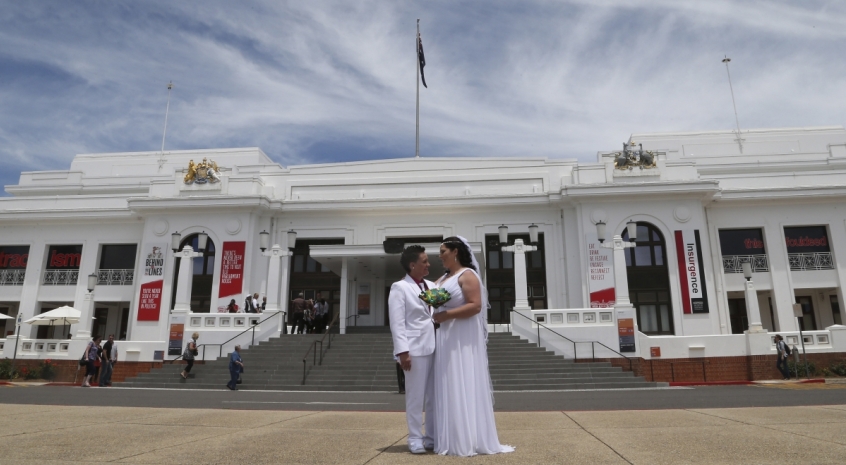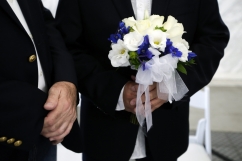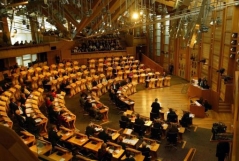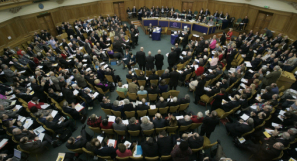
The Australian Christian Lobby has welcomed a High Court ruling overturning legislation allowing gay marriage in the Australian Capital Territory (ACT).
A bill recognising same-sex weddings in the ACT was passed in October and came into effect last weekend.
Some 27 couples have tied the knot under the new law but their unions will now be declared invalid after the Australian High Court unanimously upheld a challenge to the bill by the federal government.
The federal government argued that the bill was incompatible with the federal Marriage Act, which was revised in 2004 to specify that marriage was a union between a man and a woman.
Delivering its ruling, the High Court said: "The Marriage Act does not now provide for the formation or recognition of marriage between same-sex couples.
"The Marriage Act provides that a marriage can be solemnised in Australia only between a man and a woman. That Act is a comprehensive and exhaustive statement of the law of marriage."
The Australian Christian Lobby's Managing Director Lyle Shelton said the ruling upheld uniformity of marriage laws across the country and reaffirmed that states do not have jurisdiction to legislate on marriage.
"It's important for marriage laws to continue to be administered federally – this is why the Marriage Act was passed in 1961 to have uniform marriage laws," he said.
"Marriage between a man and a woman is good for society and beneficial for governments to uphold in legislation. It's about providing a future for the next generation where they can be raised by their biological parents, wherever possible."
However, Mr Shelton expressed concern for those same-sex couples who thought they were married under the ACT legislation.
"Understandably they will be disappointed at the decision handed down today and it is unfortunate they were put in this position," Mr Shelton said.
"The debate about changing the definition of marriage has been given a fair go for the past three years with nine parliamentary attempts to change it.
"Like the republican debate, the public and parliamentarians have had plenty of time to evaluate it and it is now time to move on."




















